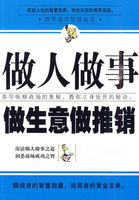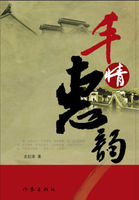Mithridates, king of a country along the shores of the Black Sea, and a Greek on his mother's side, had seen the possibility of establishing a second Alexandrian Empire. He began his campaign for world-domination with the murder of all Roman citizens who happened to be in Asia Minor, men, women and children. Such an act, of course, meant war. The Senate equipped an army to march against the King of Pontus and punish him for his crime. But who was to be commander-in- chief? "Sulla," said the Senate, "because he is Consul."
"Marius," said the mob, "because he has been Consul five times and because he is the champion of our rights."
Possession is nine points of the law. Sulla happened to be in actual command of the army. He went west to defeat Mithridates and Marius fled to Africa. There he waited until he heard that Sulla had crossed into Asia. He then returned to Italy, gathered a motley crew of malcontents, marched on Rome and entered the city with his professional highwaymen, spent five days and five nights, slaughtering the enemies of the Senatorial party, got himself elected Consul and promptly died from the excitement of the last fortnight.
There followed four years of disorder. Then Sulla, having defeated Mithridates, announced that he was ready to return to Rome and settle a few old scores of his own. He was as good as his word. For weeks his soldiers were busy executing those of their fellow citizens who were suspected of democratic sympathies. One day they got hold of a young fellow who had been often seen in the company of Marius. They were going to hang him when some one interfered. "The boy is too young," he said, and they let him go. His name was Julius Caesar. You shall meet him again on the next page.
As for Sulla, he became "Dictator," which meant sole and supreme ruler of all the Roman possessions. He ruled Rome for four years, and he died quietly in his bed, having spent the last year of his life tenderly raising his cabbages, as was the custom of so many Romans who had spent a lifetime killing their fellow-men.
But conditions did not grow better. On the contrary, they grew worse. Another general, Gnaeus Pompeius, or Pompey, a close friend of Sulla, went east to renew the war against the ever troublesome Mithridates. He drove that energetic potentate into the mountains where Mithridates took poison and killed himself, well knowing what fate awaited him as a Roman captive. Next he re-established the authority of Rome over Syria, destroyed Jerusalem, roamed through western Asia, trying to revive the myth of Alexander the Great, and at last (in the year 62) returned to Rome with a dozen ship-loads of defeated Kings and Princes and Generals, all of whom were forced to march in the triumphal procession of this enormously popular Roman who presented his city with the sum of forty million dollars in plunder.
It was necessary that the government of Rome be placed in the hands of a strong man. Only a few months before, the town had almost fallen into the hands of a good-for-nothing young aristocrat by the name of Catiline, who had gambled away his money and hoped to reimburse himself for his losses by a little plundering. Cicero, a public-spirited lawyer, had discovered the plot, had warned the Senate, and had forced Catiline to flee. But there were other young men with similar ambitions and it was no time for idle talk.
Pompey organised a triumvirate which was to take charge of affairs. He became the leader of this Vigilante Committee.
Gaius Julius Caesar, who had made a reputation for himself as governor of Spain, was the second in command. The third was an indifferent sort of person by the name of Crassus.
He had been elected because he was incredibly rich, having been a successful contractor of war supplies. He soon went upon an expedition against the Parthians and was killed.
As for Caesar, who was by far the ablest of the three, he decided that he needed a little more military glory to become a popular hero. He crossed the Alps and conquered that part of the world which is now called France. Then he hammered a solid wooden bridge across the Rhine and invaded the land of the wild Teutons. Finally he took ship and visited England.
Heaven knows where he might have ended if he had not been forced to return to Italy. Pompey, so he was informed, had been appointed dictator for life. This of course meant that Caesar was to be placed on the list of the "retired officers," and the idea did not appeal to him. He remembered that he had begun life as a follower of Marius. He decided to teach the Senators and their "dictator" another lesson. He crossed the Rubicon River which separated the province of Cis-alpine Gaul from Italy. Everywhere he was received as the "friend of the people." Without difficulty Caesar entered Rome and Pompey fled to Greece Caesar followed him and defeated his followers near Pharsalus. Pompey sailed across the Mediterranean and escaped to Egypt. When he landed he was murdered by order of young king Ptolemy. A few days later Caesar arrived.
He found himself caught in a trap. Both the Egyptians and the Roman garrison which had remained faithful to Pompey, attacked his camp.















